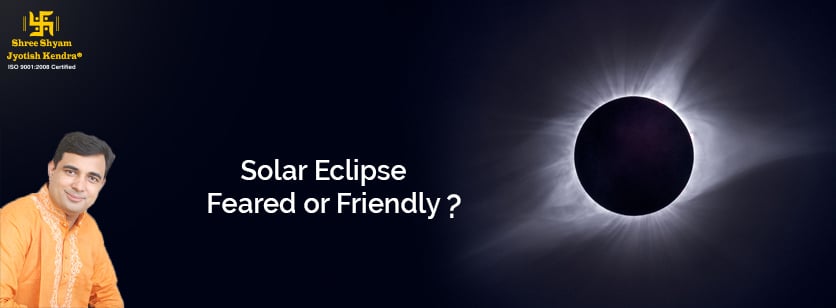
Solar eclipses have always been one of the most fascinating natural phenomena in the history of mankind. They have also been one of the most feared as well. With the advancement of modern science, there have been a number of myths that have surrounded the concept of solar eclipses in the past. With the 26th December 2019 marking the next annular solar eclipse in India, here is a short article on many of superstitions and ritual surrounding the phenomenon.
What Did the Ancients Think About Solar Eclipses?
With the limited amount of knowledge that the ancients had about nature and the workings of the solar system, their best guess often circled around the involvement of powerful gods and deities. A number of cultures used to think that the gods ate the sun, or someone powerful stole the sun from the sky. Other cultures interpreted the disappearance as a sign of the god’s anger or the gods fighting amongst themselves.
What Myths are Attached to Solar Eclipses?
Because of the lack of proper knowledge, there are a number of myths that have sprung up in the country. Apart from the reason behind solar eclipses, there are several other myths that go around being related to solar eclipses, but actually, have no relation to them whatsoever.
- People in India fast during a solar eclipse because of the belief that food cooked during an eclipse becomes unpure and poisonous.
- The ancients also believed that the sun and the moon once complained to Vishnu about Rahu deceptively drinking the nectar of gods. Vishnu beheaded Rahu, but the severed head went chasing the Sun and Moon. When Rahu consumed the Sun, it slipped out of the open end of the body, thus giving the appearance of an eclipse on the earth.
- Another common practice during an eclipse was to bang pots and pans to make loud noises. People believe that these loud noises often scared the demons away.
- People also consider that eclipses can harm pregnant ladies and unborn children, and as a result, expecting mothers are often suggested to stay indoors.
- Worshipping the gods or touching them is prohibited during the time of the eclipse. That is why temples remain closed during an eclipse. The idols are washed with Gangajal after the eclipse ends to purify them.
The fact of the hour is that these myths are only a figment of the imagination of the people who did not have the proper knowledge to explain things. And thus with no solid grounds to hold onto, these myths have stopped being a part of the rituals that are followed during solar eclipses. But if these are myths, what does astrology say about solar eclipses?
Astrological Meaning of Solar Eclipses
All the research on the subject will bring you to a few common assumptions:
- Solar Eclipses happen when the moon comes in between the earth and the sun.
- Solar eclipses only happen on New Moon.
- New moons are the ending and the beginning of a new lunar cycle.
Astrology has established the right kind of connection between these 3 facts in order to bust the myths about Solar eclipses. Astrology sees solar eclipses as the right to begin development of something new, or the correct time for starting something new.
Solar eclipses have been a feared concept in the history of mankind, having been established as a part of the wrath and anger of the gods. However, going by the views of astrology, Solar Eclipses are the time to begin a new chapter of life. One of the most renowned astrologers in Delhi, Pandit Pawan Kaushik has worked for decades in designing a better life for people associated with him. For more information on Solar eclipses and their impact on your life, you can get in touch with Pandit Ji at Gurgaon office.
 +91 9990176000
+91 9990176000 +91 9999097600
+91 9999097600
 CALENDAR 2024
CALENDAR 2024











